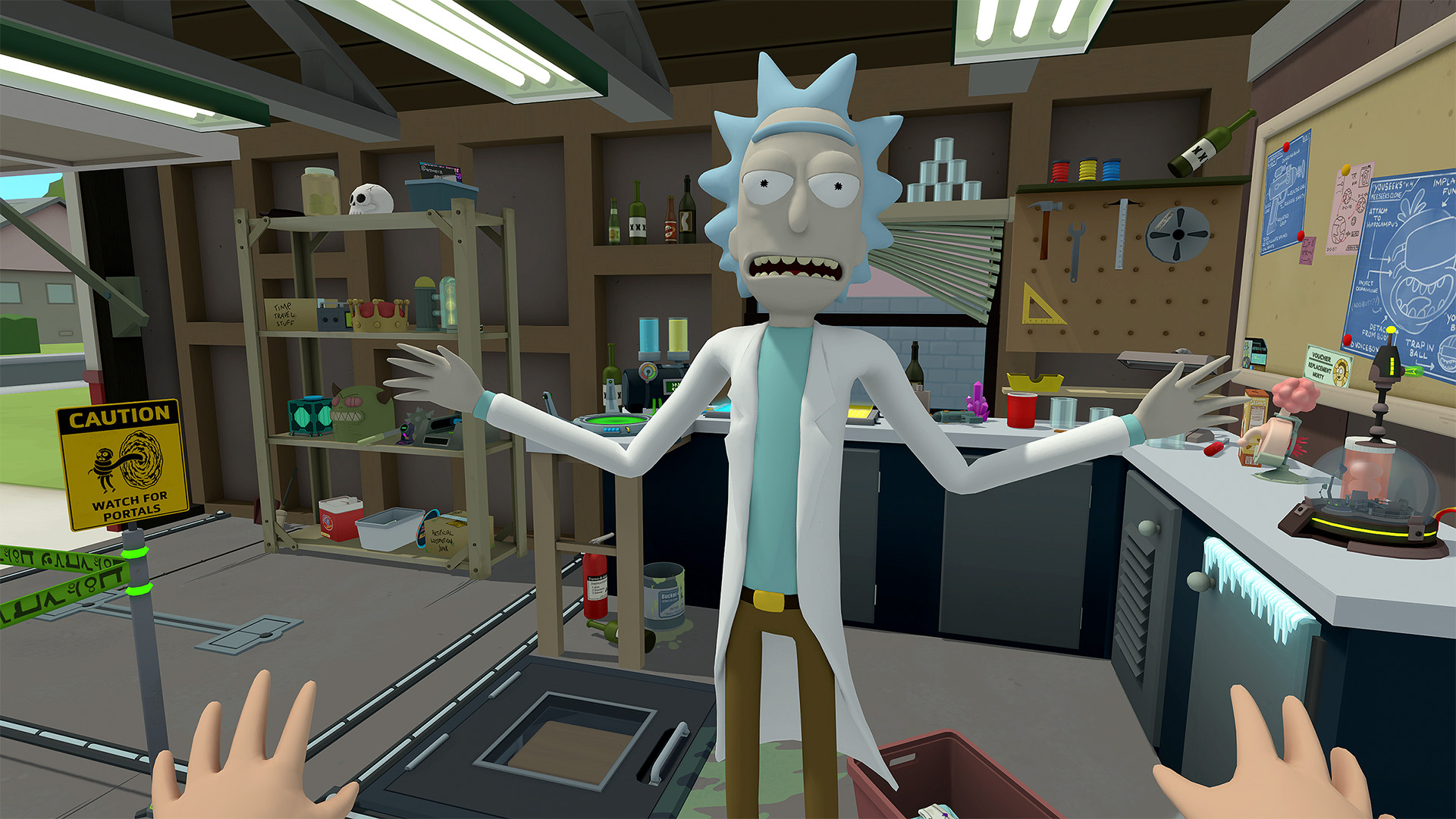Great moments in PC gaming: Getting so into VR you forget you're in VR
The first time your brain is genuinely tricked is amazing (and a bit dangerous).

Great moments in PC gaming are bite-sized celebrations of some of our favorite gaming memories.
I've played a lot of different VR games since 2016, and I've played them on a lot of different equipment. I've tried Sony's PlayStation VR headset, two different models of the HTC Vive, Valve's Index, and two versions of the Quest. The games I've played include Minecraft (my very first time in VR), No Man's Sky, Doom, Fallout 4, and Skyrim, as well as fishing games, kayaking games, battle royales, a whole bunch of VR MMOs, and a stealth game I was so bad at I wound up owing the Australian government $200 million.
I even played with training software designed for soccer players where the sensors are strapped to your feet instead of your hands and you kick a virtual ball. Weirdly enough, it was one of the best experiences of the bunch.
I'm one of the lucky ones: VR never makes me nauseous, whether I'm doing barrel rolls in space or jumping out of a plane in a battle royale. On the other hand, I've been a bit unlucky in that I've never really been able to lose myself in VR. No matter how great it looks or plays, no matter the sights or sounds, I've never really been able to let my brain be fooled. I'm always aware I'm playing a game, wearing a headset, holding controllers, and shuffling around in a corner of my room.
VR can be fun, but it's never been that convincing to me. I've never felt transported. My brain never gave up and said "This is reality."
Except once.
It happened in the last game I would have ever expected—Rick and Morty: Virtual Rick-ality. I know, right? You'd think that to forget the real world and embrace a virtual one, that virtual world would need to be photorealistic. It would have to be so visually convincing that your brain would accept it. It surely couldn't be a game where you stand in a garage while cartoon characters swear at you. But weirdly enough, it was.
The biggest gaming news, reviews and hardware deals
Keep up to date with the most important stories and the best deals, as picked by the PC Gamer team.
In Rick and Morty: Virtual Rick-ality you basically just hang out in Rick's garage and mess with stuff. Solve puzzles, perform experiments, throw things around, break whatever you can, and occasionally go through portals. But mostly you're just in a cartoon drawing of a garage trying to get Rick to stop yelling at you and figuring out what everything does.

But at one point, after about 40 minutes of opening drawers, pouring out beverages, putting stuff into the washing machine, fixing things and breaking more things, I had to stoop down to read a note that was about floor level. To steady myself I reached out with my right hand to lean against the counter, but of course the counter wasn't there. I was in a virtual garage, not a real one. And instead of the counter, there was empty space, so instead of steadying myself I fell forward, stumbled a couple steps, and collided with the extremely real closet door in my room.
It hurt and I felt like a dumbass, but it was the first time in a VR game where my brain just accepted a virtual reality as a real one. I think a large part of the reason doesn't have anything to do with how photorealistic a game is, but how interactive a game is.
The Rick and Morty game has cartoony looks, sure, but there's so much stuff to pick up and play with, and objects act like you'd expect them to. If you want to open a bottle and pour out the contents, you pull off the cap and turn the bottle upside down. There's buttons to push and levers to pull and drawers to open and things everywhere to pick up and use. It doesn't look like the natural world, but it acts like the natural world (except for all the goofy sci-fi stuff), and I think that was the key for getting my brain to accept that a drawing of a countertop was a real countertop. As gorgeous as Half-Life: Alyx is, it never fooled my brain like that—but a cartoony Rick and Morty game absolutely did.

Chris started playing PC games in the 1980s, started writing about them in the early 2000s, and (finally) started getting paid to write about them in the late 2000s. Following a few years as a regular freelancer, PC Gamer hired him in 2014, probably so he'd stop emailing them asking for more work. Chris has a love-hate relationship with survival games and an unhealthy fascination with the inner lives of NPCs. He's also a fan of offbeat simulation games, mods, and ignoring storylines in RPGs so he can make up his own.

